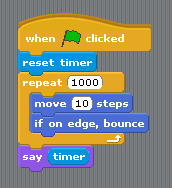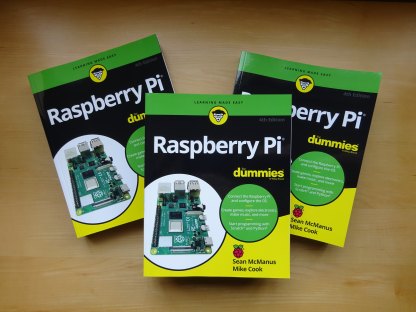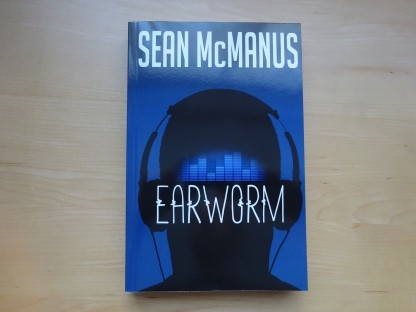
100 Top Tips: Microsoft Excel
Power up your Microsoft Excel skills with this powerful pocket-sized book of tips that will save you time and help you learn more from your spreadsheets.
19 November 2018
As you might know, a new version of Scratch launches in January. This new feature has a lightly redesigned interface, with the Stage on the right (where it was for Scratch 1.4) and a new ability to scroll through all the blocks to find the one you want. The most significant change, though, is that it's been rebuilt from the ground-up using HTML5. That means the same version of Scratch can now be used across a wider range of devices, compared to the previous Flash-based version of Scratch. Raspberry Pi users will be first class citizens in the Scratch community for the first time, able to use the same online version as everyone else.
Scratch 2.0 also works on the Raspberry Pi and now features in the Raspbian download. It's noticeably slower than Scratch 1.4, though, so I was wondering how Scratch 3.0 would measure up.
I created a simple benchmark program that times how long it takes for the cat to walk back and forth across the screen in 1000 movements of 10 steps each. Using a loop of 1000 movements helps to amplify any performance lag so it's easier to measure. Here's the code:

A simple speed test for Scratch
This isn't a perfect benchmark. Some operations (in particular the graphic effects) work more slowly in some versions of Scratch, for example. Because most Scratch programs use sprite movements, this code should give a useful indicator of how they will perform, though. By creating a more complicated benchmark using more features, the risk is that it doesn't capture the typical performance and that some highly optimised (or very slow) commands create a misleading average result. This test is based on the beta as at November 2018, so the launch version of Scratch 3 may be faster or slower, and different software configurations on the devices may also change performance.
I rebuilt the test script in each version of Scratch before testing. My test hardware was:
Obviously, using different devices and more modern devices in the case of the PC and iPad, you may see different results. You can see the code above if you want to try it on your devices, and feel free to share your observations in the comments below.
Drumroll, please! Here are the results, with execution time shown in seconds:
| Scratch 3 | Scratch 2 | Scratch 1.4 | |
| Raspberry Pi 3 | 64.35 | 70.14 | 21.7 |
| Windows 8 PC | 33 | 33.32 | 25.27 |
| iPad Mini | 120.1 | N/A | 27.8 |
Performance was not always exactly the same, but it was close enough to give a fair indication.
So, the key conclusions are:
It is exciting that Scratch 3 will enable everyone to be part of the vast and growing Scratch community, running the same version of Scratch and enjoying the same features for sharing and discussing projects. There's nothing to stop anyone building their first scripts and programs using Scratch 3 on these devices. As coders progress to more advanced projects and speed-sensitive games, they may prefer to seek out a device with faster performance, depending on the device they are starting with.
For Scratch inspiration, check out my books Coder Academy, Cool Scratch Projects in Easy Steps and Scratch Programming in Easy Steps.
UPDATE: Following a discussion on Twitter, I have new results to share:
Permanent link for this post | Blog Home | Website Home | Email feedback
© Sean McManus. All rights reserved.
Visit www.sean.co.uk for free chapters from Sean's coding books (including Mission Python, Scratch Programming in Easy Steps and Coder Academy) and more!

Power up your Microsoft Excel skills with this powerful pocket-sized book of tips that will save you time and help you learn more from your spreadsheets.

This book, now fully updated for Scratch 3, will take you from the basics of the Scratch language into the depths of its more advanced features. A great way to start programming.

Code a space adventure game in this Python programming book published by No Starch Press.

Discover how to make 3D games, create mazes, build a drum machine, make a game with cartoon animals and more!

Set up your Raspberry Pi, then learn how to use the Linux command line, Scratch, Python, Sonic Pi, Minecraft and electronics projects with it.

In this entertaining techno-thriller, Sean McManus takes a slice through the music industry: from the boardroom to the stage; from the studio to the record fair.